Introduction to Keyword Research: A guide
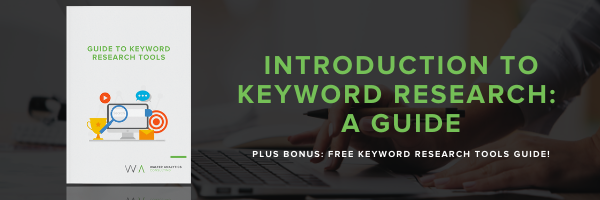
Introduction
With all the changes brought about by Google algorithms, one thing is constant: keyword research.
Since keyword research is so important for SEO, we will highlight everything you need to know about it in this guide.
Firstly, what is Keyword Research?
Keyword research is a multi-step process of identifying and analysing search terms or queries that people enter into search engines like Google, Bing, and Yahoo. Through this effort, marketers are given the idea of how popular a certain keyword is and at the same time, how hard it is to compete for those keywords in the organic search results – thus, paving the way for a more effective optimisation strategy.
As mentioned that this is a multi-step process, which means that keyword research isn’t just a one-shot task. Remember that search language is in constant change because peoples’ searches are in constant change too, as their different needs develop and grow. As a result, keyword research must be regularly revisited and maintained. According to industry experts, a keyword strategy revisit must be done on a quarterly basis and at least 3-6 months before starting a new website, or if you’re creating a new blog post for your existing website, or before any new promotion or campaign.
Finding the right keywords
Start with a simple brainstorming.
Ask yourself, “What might be the topics that people search which are related to my business?”
Make sure to jotdown or open a spreadsheet as you think of these possible topics.
Let’s try. For example, our business is a food business.
Some topics we can start with are:
- Food cart
- Beverages
- Food preparation
- Food storage
- Pastries
Then with these broad topics, we can derive our specific keywords.
The first is through Wikipedia. Type in one of our listed topics.

That will take you to the Wikipedia result page.
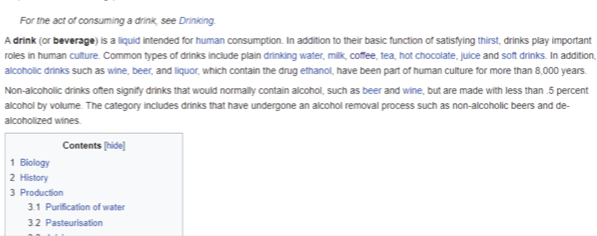
Then, go look for the “contents” section of the page. This section shows the subtopics within the page.
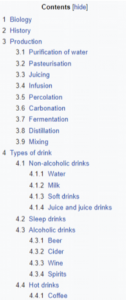
Then check out some keywords that may be used as our keywords through the contents section.
You may also click to open the internal links on the page to check out the Table of Contents of other closely related topics. For example, we have a link to “Places to drink”. Let’s open.
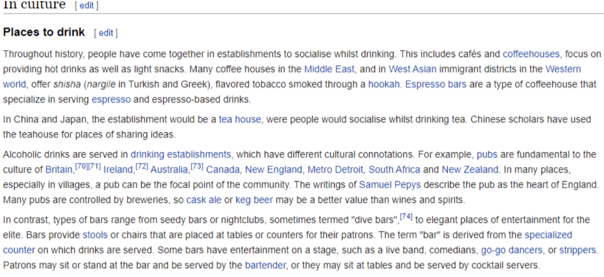
And there are more keywords to show like, coffeehouses, Espresso bars, and tea houses.
A second practical way to do it is through Google and YouTube suggestions.
From the list of your topics, type each one of them into Google.

The above-suggested keywords from Google are the best keywords to add to your list because if Google suggests them, it means that many people are looking for it.
Another way to do it is through YouTube suggestions.

Thirdly, we can make use of the related searches.
The related searches can be found at the bottom of the SERP.
So for example, let’s still use the topic “food cart”.
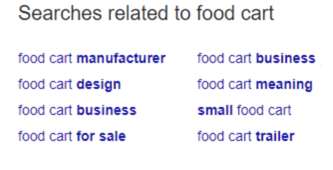
Just a little hint, as these keywords come directly from Google, there is a 100% assurance that these keyword ideas are popular.
To grow your keywords, you may go on and click one of the keywords from the search-related keywords. Again, scroll down up to the bottom and find new sets of keywords.
Keyword Research Tools
Did you find the prior process as tedious? No worries, there are a lot of keywords research tools available online that can make this process a lot easier. We, at Walter Analytics, recommend some that we personally use.



